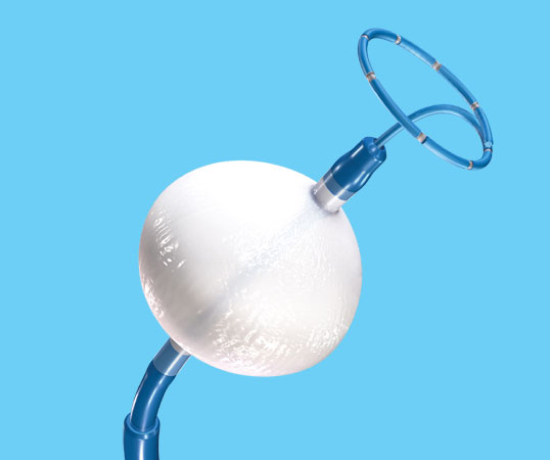Ever felt your heart skip a beat? If so, you are likely seeking a fix to steady those heart flutters. Atrial fibrillation, or AFib, might have you weighing catheter ablation choices. You are faced with two main types:
- Radiofrequency, which applies heat
- Cryoablation, which freezes troubled heart areas.
Both have grown to offer relief yet hold their own pros and cons. Your pick shapes your heartbeat and day-to-day life. Let us dive into these paths and find the right one for you.
Understanding Catheter Ablation for AFib
When AFib strikes, you might hear about catheter ablation or cryo balloon ablation in Chennai. Heart rhythm experts, called electrophysiologists, use this to fix irregular beats. During the process, they thread thin tubes, or catheters, to your heart via blood vessels. These tools then create scar tissue to block bad signals, making your heartbeat erratic.
The aim is to get your heart rhythm back to normal by targeting the heart muscle areas sparking those abnormal beats. Scar tissue from energy blasts can break the bad rhythm’s flow. This step could reduce or stop your AFib symptoms.
It is key to grasp how this procedure works to understand the difference between radiofrequency (RF) ablation and cryoablation. Each has a unique way of making the scar tissue you need. Knowing this helps you choose with confidence.
Mechanics of Catheter Ablation in AFib Treatment
Here's a detailed explanation of what the catheter ablation procedure entails:
- Two main energy forms are radiofrequency (RF) and cryoablation.
- The choice depends on where the arrhythmia is and your doctor’s experience.
- Each method has its pros and cons to think over.
With this in mind, you can get the nitty-gritty of each method and talk it over with your doc.
Radiofrequency Ablation for Arrhythmia Treatment
Radiofrequency ablation (RF ablation) has been a go-to method for heart rhythm issues for years. RF ablation zaps heart tissue with radio waves to make scars, blocking the bad signals causing arrhythmias.
RF ablation has been around since the 80s, getting better over time. It heats a small heart tissue, stopping those extra impulses that cause the fast beats.
It works well for different arrhythmias, like atrial flutter and tachycardia. RF ablation is known for lasting results and has many catheters for custom care. Plus, it is fast, making scars in about a minute.
However, RF ablation is not perfect. It might not always work in spots with poor blood flow, which can mess with success rates.
As you think about RF ablation, also look at other options, like cryoablation, for a fresh way to handle arrhythmias.
Benefits of Radiofrequency Ablation in AFib
RF ablation has perks to consider:
- Its successful rack record .
- A wide catheter range for custom care.
- A speedy procedure with fast scar-making.
These perks show RF ablations promise, but It is key to know its limits too, which we will cover next.
Limitations of Radiofrequency Ablation in AFib
RF ablation for AFib has downsides to note. While well used, it might falter in low-flow blood areas. That is a big deal since procedure success hinges on making scars to disrupt bad electrical heart paths.
Another hitch? Its scars may not always last, which could cause arrhythmia to return.
Keep these points in mind when mulling over your options. As you balance RF ablations pros and cons, you might find cryoablations different perks suit you better.
Cryoablation for Heart Arrhythmias- An Overview
Cryoablation could be on your list as a new option for AFib treatment. It targets trouble spots in your heart with deep cold. A key step, cryomapping, allows your doctor to test the ablation area before making lasting changes. This helps avoid needless tweaks to your heart's structure. Now that you know more about cryoablation and its fresh approach, let us look at its specific advantages to managing AFib.
Benefits of Cryoablation in Treating AFib
Considering AFib options? Cryoablation stands out with its own perks. A big one is site testing or cryomapping. This lets your heart doctor briefly turn off heart tissue to see its impact before making a lasting scar.
The cryoablation catheter also sticks well to the target spot. This steadiness is key for accurate treatment. It is beneficial in spots with poor blood flow where other methods may not do as well.
As you ponder cryoablation, remember it has downsides too, that might steer your choice. Your healthcare team can help you see how these pluses and minuses fit your situation.
Limitations of Cryoablation in AFib Management
Cryoablations got its drawbacks such as:
- It is newer, with inadequate long-term information.
- There’s a higher chance of AFib recurring.
- Takes longer to make a scar.
Knowing these cons is vital as you weigh your options for AFib care.
Comparing AFib Treatments Cryoablation vs. Radiofrequency
Cryoablation and radiofrequency (RF) ablation are two prominent options for AFIb. Both aim for pulmonary vein isolation, a key goal in AFib care, by making scars to block bad signals causing arrhythmia. Yet, they do it differently, each with their own success and complication stats.
Success-wise, both are mostly effective, with catheter ablation scoring over 90 percent. The success gap between the two is small, and both have low complication risks. Yet, cryoablation can risk phrenic nerve harm, possibly freezing the diaphragm, while RF ablation might increase the chance of heart issues like pericardial effusion.
As you dig into these options, know that your doctor's skill and your health details are key to picking the right AFib management.
Reflecting on Your Journey to a Healthier Heartbeat
Knowing the difference between radiofrequency and cryoablation for AFib is just the start of a smarter AFib care journey. As you ponder this comparison, remember that your heart health choice is deeply personal, needing expert advice.
Consult a reputed interventional cardiologist in Chennai to determine the best course of action to alleviate your AFib symptoms.

